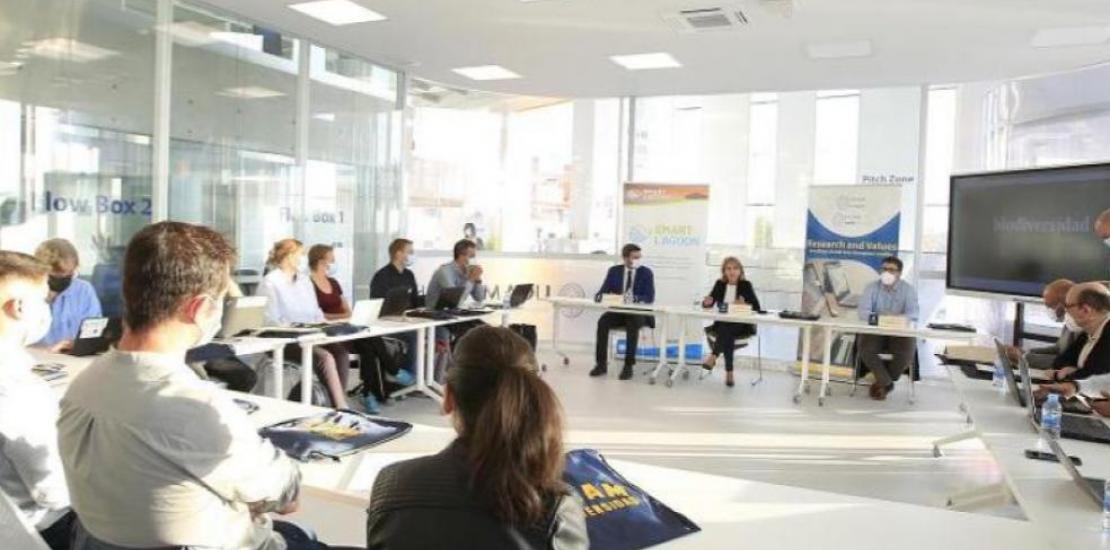UCAM brings together scientists from six European countries to work on the recovery of Mar Menor
The research sessions of 'SMARTLAGOON', an EU-funded Horizon 2020 project led by the Universidad Católica de Murcia, kicked off at the UCAM HiTech Sport and Health Innovation Hub this morning.
The 'SMARTLAGOON' project, funded by the Horizon 2020 Framework Programme with nearly 4 million euros, has held its first face-to-face scientific session for the recovery and conservation of the Mar Menor. The event, held at the UCAM HiTech (incubator of high technology, health, sports and food of the Universidad Católica de Murcia), allowed the creation of synergies and the transfer of knowledge among scientists involved in research on the saltwater lagoon.
Researchers from UCAM, Universitat Politécnica de Valencia and Vielca Ingenieros SA (Spain), Wateritech APS (Denmark), Uppsala Universitet (Sweden), Norsk Institut for Vannforskning (Norway), Universita di Bologna (Italy), and Photrack AG (Switzerland) participated in the event, which was coordinated by Javier Senent, lead researcher of the project and director of the International Chair of Water Research at the Universidad Católica.
The opening ceremony was also attended by Antonio Luengo, regional councillor for Water, Agriculture, Livestock, Fisheries and the Environment; Estrella Núñez, Vice-Rector for Research at the Universidad Católica; Ángel Pablo Cano, Director of the International Projects Office of this university; Victor Serrano Conesa, General Director of IMIDA; Francisco López Castejón, researcher at the Universidad Politécnica de Cartagena; and Francisco Cabezas Calvo-Rubio, external advisor to the project and Director of the Euro-Mediterranean Water Institute.
Antonio Luengo stressed that ''this project is being presented at the UCAM HiTech, a high-tech incubator which the university has made available to companies in the region so that they can continue to invest in innovation, technology and development''. Estrella Núñez stated ''the objective of this first day is to inform the entire regional scientific community about the milestones set and the steps that are to be taken in this massive project''.
Creation of a digital twin
To carry out the 'SMARTLAGOON' research, scientists are combining detection technologies based on artificial intelligence as well as IoT (Internet of Things) infrastructures to create an innovative virtual model. This 'Digital Twin' of the Mar Menor will replicate the physical processes occurring in the saltwater lagoon and will show the impact of each of the actions carried out by the sectors involved, forecasting its short and long term changes, and reporting on the consequences of the actions to the ecosystem.
In addition to this scientific forum, during this week other work is being carried out related to the collection of data on the lagoon as well as scientific dissemination. Moreover, scientific encounters and meetings are being held with stakeholders (ecologists, economic sectors, administrations, neighbours, etc.), and cameras are being installed. Salvador Peña, one of the project's researcher, said ''we are focusing on environmental measurements based on the processing of images. This technology is being applied to the Mar Menor in order to determine the amount of water entering the saltwater lagoon, as well as its quality''.




